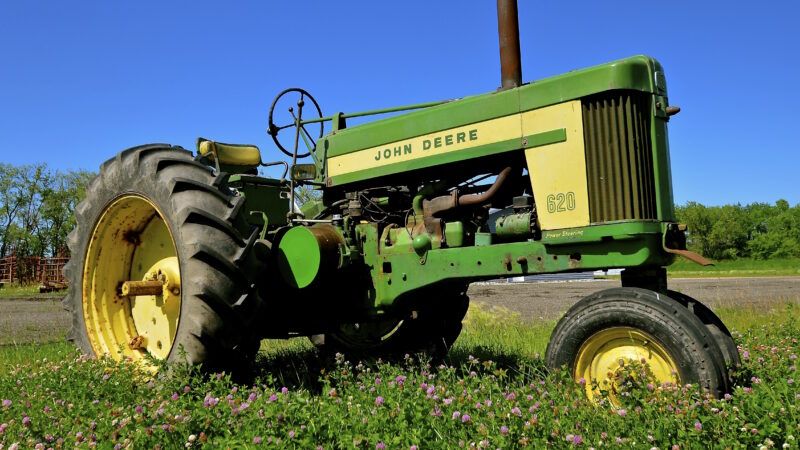How John Deere Hijacked Copyright Law To Keep You From Tinkering With Your Tractor
Hackers are helping tractor owners “jailbreak” their equipment in order to repair it.

Discussions about the repairability of high-tech devices tend to focus on mass-market products: smartphones, laptops, video game consoles, and other commonplace devices. Less apparent is the repairability of tractors, cultivators, combines, and other heavy agricultural equipment that are equally reliant on computers and software. As with smartphone or laptop repairs, farmers and right-to-repair advocates have long complained that agricultural equipment manufacturers have used software to lock owners out of their products. To combat such restrictions, farmers and white-hat hackers have joined in an unlikely alliance to "liberate the tractors."
As with other types of hardware, such as smart cars, the "techiness" of heavy agricultural machinery has become an impediment to meaningful ownership. Now, companies such as John Deere have vertically integrated the entire ecosystem for equipment, requiring customers to purchase repair services exclusively from dealers and using software to prevent independent repairs.
Whenever software has been used to prevent the owners of products from altering or repairing their property, groups of ideologically driven individuals have used their skills to circumvent such constraints. Agricultural equipment is no different, and hackers have taken it upon themselves to "jailbreak" or open up the closed software systems that prevent independent repairs. In the words of one such hacker, "We want farmers to be able to repair their stuff for when things go wrong, and now that means being able to repair or make decisions about the software in their tractors."
Hackers have now developed tools that would give power back to the owners of farm equipment, allowing farmers unversed in handling software to circumvent manufacturers' software locks and independently make repairs and service their equipment. There's only one problem with this movement to liberate the tractors: It's a violation of federal copyright law.
Under Section 1201 of the Digital Millennium Copyright Act (DMCA), any individual who produces or uses a tool designed to circumvent software intended to keep them out of a system faces five years in federal prison and a fine of up to $500,000. Those penalties double for each subsequent infraction. This means software developers who build tools to get around John Deere's software blocks could receive a 10-year prison sentence and a $1 million fine for each time they distribute their tool. Although the Copyright Office has implemented a narrow exception to the law for certain circumstances, a farmer who purchases such a tool could also end up in federal prison.
The Copyright Office technically has the ability to implement broad, permanent exclusions to Section 1201 but has so far refused to act absent expressed congressional authorization. Fortunately, there are some in Congress that recognize this issue and have proposed solutions.
In 2022, then-Rep. Mondaire Jones (D–N.Y.) sponsored the Freedom to Repair Act, which would exempt all maintenance and repairs from Section 1201. More recently, Rep. Victoria Spartz (R–Ind.) introduced the Farm Freedom to Repair Act, a much narrower proposal that would permanently exempt "the diagnosis, maintenance, and repair of digital electronic agricultural equipment" from Section 1201. Either proposal would be an improvement over the status quo, but the Freedom to Repair Act's comprehensiveness presents a better solution to the issues posed by Section 1201.
For nearly 25 years, Section 1201 has been hanging over the developers and distributors of tools that give users more control over the products they own. The ways in which John Deere and other corporations have used the copyright system is a glaring example of regulatory capture in action, highlighting the absurdity of a system where owning a product doesn't necessarily convey the right to fully control it. There are certainly circumstances where the manufacturers are justified in protecting their products from tampering, but such cases should be handled through warranty nullification and contract law, not through exorbitant fines and lengthy prison sentences.
With the Farm Bill up for reauthorization, Congress is in a perfect position to reform Section 1201 of the DMCA, giving farmers, hackers, and the owners of all types of tech the freedom to repair.


Show Comments (40)